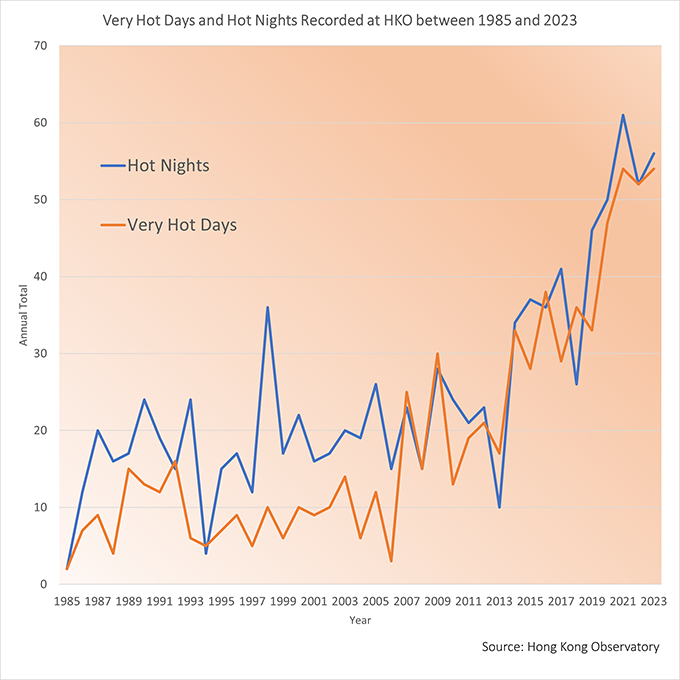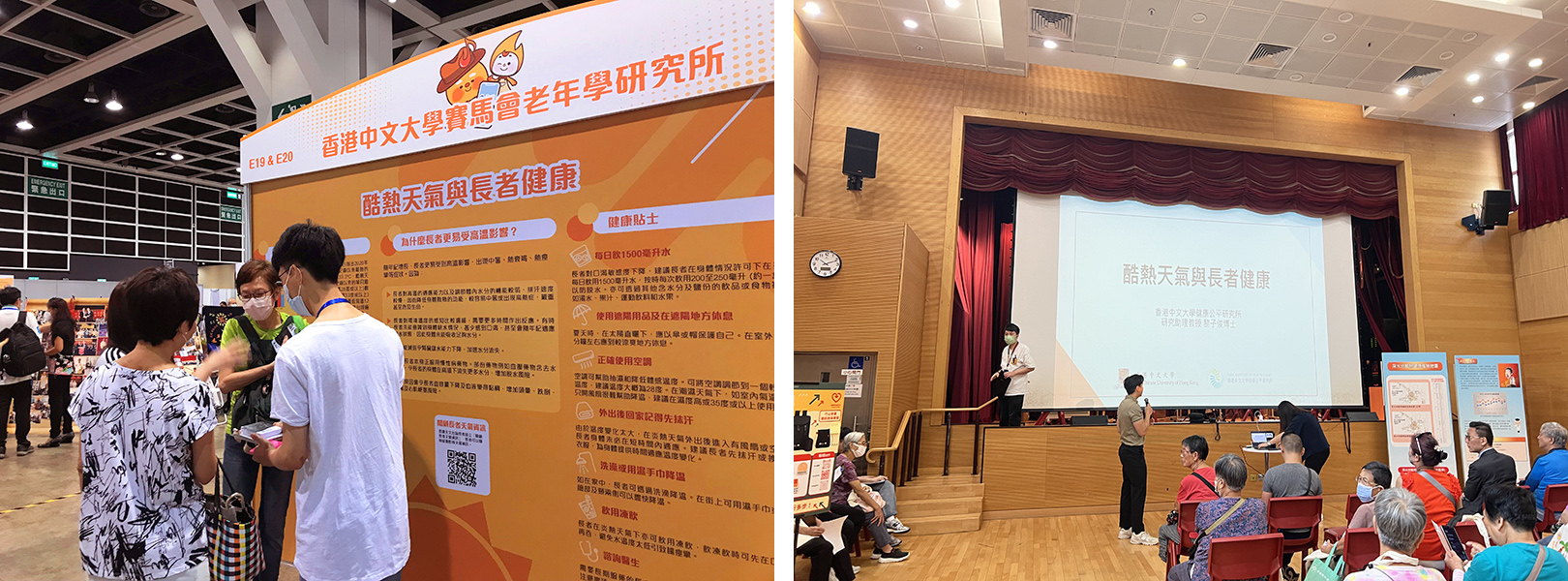Introduction
Hot Weather Conditions in Hong Kong
Hong Kong, like the rest of the world, has experienced a warming trend over the past century or so, with an increase in the number of hot nights1 and very hot days2 and a decrease in the number of cold days3. Since 2021, the Hong Kong Observatory has recorded an average of more than 50 very hot weather days per year, the highest number since records began. Extremely hot weather4 is expected to become more frequent in the future.
1 Hot Nights: days with a minimum temperature of 28°C or above
2 Very Hot Days: days with a maximum temperature of 33°C or above
3 Cold Days: days with a minimum temperature of 12°C or below
4 Extremely Hot Weather: days with a maximum temperature of 35°C or above

The Institute initiated its research and district work in 2020. In collaboration with local organisations, it conducted educational programmes on the impact of extreme weather on the elderly and the general public. Furthermore, community-based strategies were developed to address the challenges posed by extreme weather.

Health Risks of the Elderly in Hot Weather
As the years go by, the body functions of the elderly change. This results in slower behavioural responses and a reduction in sensitivity to thirst and temperature. This makes it challenging for the elderly to cope with hot weather effectively.
A substantial body of research has demonstrated a clear correlation between elevated mortality and morbidity rates and exposure to high temperatures. In addition to its impact on physical health, hot weather can also have a detrimental effect on mental wellbeing, potentially increasing the risk of suicide.
Research
- Invite older people in the neighbourhoods to complete questionnaires about their awareness of hot weather and its health effects on them.
- Engaging the elderly and local stakeholders in focus group discussions to gain a deeper understanding of the impact of hot weather on the elderly and the provision of summer cooling facilities in the community.
- Collecting temperature and humidity data from different locations in the community and integrating them into a heat map, which indicates the cool locations in the community and the community facilities that can be used to cool off.
- Organising academic seminars to share experiences and ways to cope with hot weather with experts.
- Publications
Education
To work with government departments and local organisations in the production of educational materials, including talks, videos and pamphlets, as well as research seminars and media interviews, with the objective of raising awareness of the health risks associated with hot weather and ways to cope with the heat.
Projects
List of Publications
| Title | Author(s) | Issue Date |
|---|---|---|
| Extreme Hot Weather Events and Risk of Hospitalization for Cardiovascular and Respiratory Diseases in Older People in Hong Kong in 2012–2018 | Lai, E. T., Ho, I. Y., Ho, H. C., Chau, P. H., Yip, T. C., Wong, G. L., & Woo, J. | 2025 |
| The role of older adult-focused social vulnerability on the relationship between temperature and emergency department attendance in a subtropical Asian city | Ho JYE, Lai ETC, Chau PH, Chong KC, Woo J. | 2024 |
| The Environment and Health Inequalities in Hong Kong | CUHK Institute of Health Equity | 2024 |
| Perception of extreme hot weather and the corresponding adaptations among older adults and service providers–A qualitative study in Hong Kong | Lai, E. T. C., Chau, P. H., Cheung, K., Kwan, M., Lau, K., & Woo, J. | 2023 |
| Assessing spatial variability of extreme hot weather conditions in Hong Kong: A land use regression approach | Shi, Y., Ren, C., Cai, M., Lau, K. K. L., Lee, T. C., & Wong, W. K. | 2019 |
| Neighbouring green space and all-cause mortality in elderly people in Hong Kong: a retrospective cohort study | Wang, D., Lau, K. K. L., Ruby, H. Y., Wong, S. Y., Kwok, T. C., & Woo, J. | 2016 |






